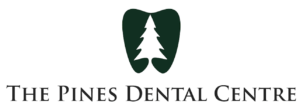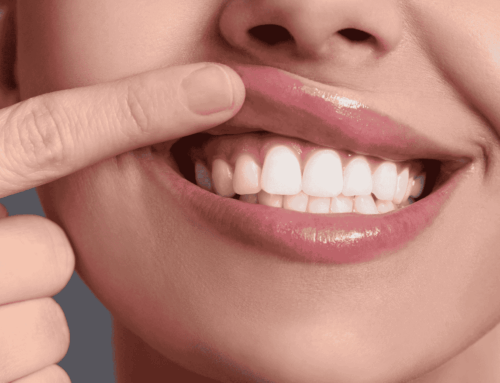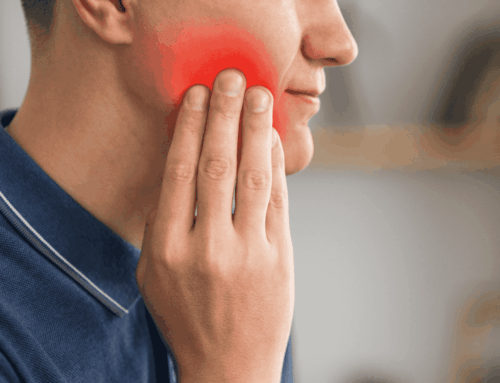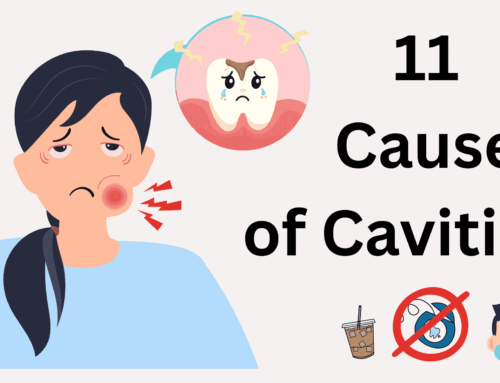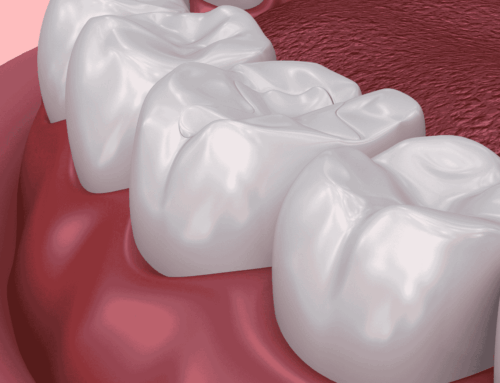By Dr. Nihal Nayak | General Dentist, BBiomedSc (Aus), BBiomedSc (Hons), BDentHSc (Aus), MDent (Aus)
Maintaining a healthy mouth isn’t just about fresh breath or a bright smile, it’s about keeping harmful bacteria in check. Every day, your mouth hosts millions of bacteria, some beneficial and others that can lead to cavities, gum disease, and bad breath. Without proper care, these harmful microbes can multiply, increasing the risk of oral health issues.
Fortunately, there are effective strategies to combat these bacteria and promote a healthier oral environment. From daily hygiene practices to dietary choices, each step plays a crucial role in reducing bacterial buildup. In the following sections, we’ll explore 9 proven methods to help you reduce harmful bacteria and maintain optimal dental health.
1. Brush Your Teeth Twice a Day
Let’s start with the most essential habit, brushing your teeth every morning and night. It sounds simple, but it’s one of the most powerful ways to control bacteria in your mouth. Throughout the day, food particles and plaque build up on your teeth, giving harmful bacteria the fuel they need to grow. Brushing helps remove that buildup before it turns into something more serious, like cavities or gum disease.
As experienced dental professionals in Doncaster, we know that for best results, it’s important to use a soft-bristled toothbrush and fluoride toothpaste. Take your time, brush for at least two minutes, and make sure to clean every surface—especially along the gumline. Brushing at night is especially important because your saliva production slows down while you sleep, giving bacteria more time to multiply.
2. Get Professional Dental Cleans Every 6 Months
Brushing and flossing help manage daily plaque, but they can’t remove hardened tartar or catch early signs of trouble. That’s where professional dental cleans come in. At The Pines Dental Centre, we recommend coming in every six months for a thorough clean and oral exam. It’s one of the most effective ways to prevent cavities and gum disease before they start.
These regular visits don’t just polish your teeth, they give your dentist a chance to check for signs of decay, inflammation, or oral health issues you might not notice. It’s a proactive step that pays off in fewer dental problems down the line.
3. Floss Once a Day
Brushing alone can’t reach every area where bacteria hide, especially between your teeth. That’s where flossing comes in. Even the best toothbrush can’t remove the plaque and food particles stuck in those tight spaces. If left alone, these areas become a breeding ground for bacteria, leading to bad breath, cavities, and gum inflammation.
Daily flossing helps break up plaque before it hardens into tartar, which only a dentist can remove. Try to floss gently and curve the string around each tooth to clean beneath the gumline. If you find string floss tricky to use, consider floss picks or a water flosser, they can be just as effective when used correctly.
4. Scrape Your Tongue Daily
Your tongue traps a surprising amount of bacteria, especially near the back where brushing often misses. That white coating? It’s a buildup of dead cells, food debris, and germs that can cause bad breath. Using a tongue scraper daily helps remove this layer and keeps your mouth fresher. Just place the scraper at the back of your tongue, gently pull forward, and rinse between scrapes. If you don’t have one, the back of your toothbrush can work in a pinch.
5. Drink More Water
Staying hydrated does more than just support your overall health, it also helps keep harmful bacteria in check. Every time you drink water, you’re rinsing away leftover food particles and sugars that bacteria feed on. It also stimulates saliva production, which plays a key role in maintaining a healthy balance of bacteria in your mouth.
Unlike acidic or sugary drinks, water doesn’t fuel bacterial growth or dry out your mouth. In fact, drinking water regularly can help neutralise acids and prevent plaque from forming in the first place. If you’re not in the habit of sipping water throughout the day, try keeping a refillable bottle nearby as a reminder. Choosing water over soft drinks or juice, even just a few times a day, can make a noticeable difference in your oral health.
6. Chew Sugar-Free Gum with Xylitol
Chewing sugar-free gum with xylitol is a simple way to reduce bacteria and support oral health. Xylitol doesn’t feed harmful microbes, instead, it makes it harder for them to stick to your teeth. Gum also boosts saliva, which helps wash away food and neutralise acids, especially after meals. Look for gum that lists xylitol as a key ingredient, and use it as a quick, on-the-go addition, not a replacement, for brushing and flossing.
7. Brush Along Your Gum Line, Inner Cheeks, and Roof of Mouth
When it comes to oral hygiene, most people focus only on their teeth, but bacteria don’t stop there. Your gums, inner cheeks, and even the roof of your mouth can harbour germs that contribute to bad breath and infections. Ignoring these areas means bacteria have plenty of space to thrive, even after a good brushing.
To keep things in check, gently brush along your gumline and sweep your toothbrush across the inside of your cheeks and the roof of your mouth. Use soft, circular motions and don’t apply too much pressure, these tissues are sensitive, and you don’t want to cause irritation.
8. Avoid Sugary Foods and Drinks
Sugar is one of the main culprits behind harmful bacterial growth in your mouth. When you eat or drink something sugary, the bacteria in your mouth feed on it and produce acids that wear down tooth enamel. Over time, this process can lead to cavities, gum irritation, and even tooth loss if left unchecked.
Cutting back on sugary snacks, soft drinks, and sweetened coffee or tea can make a big difference. If you do indulge, try to rinse your mouth with water afterward or brush your teeth soon after.
9. Quit Smoking and Reduce Alcohol
Tobacco and excessive alcohol don’t just harm your overall health, they also create the perfect environment for bacteria to grow in your mouth. Smoking dries out your mouth, weakens your gums, and makes it harder for your body to fight off infection. Meanwhile, alcohol can reduce saliva flow and disrupt the balance of good and bad bacteria, especially when consumed frequently.
Quitting smoking and cutting back on alcohol can significantly improve your oral health. You’ll reduce your risk of gum disease, tooth loss, and even oral cancer. If quitting feels overwhelming, start by seeking support from a healthcare professional or using stop-smoking aids.
Final Thoughts
Taking care of your mouth isn’t just about fresh breath or clean teeth—it’s about protecting your health from the ground up. Bacteria can build up quickly, but consistent daily habits like brushing, flossing, and drinking water go a long way. Just as important, though, are the things you can’t always do at home, like getting a professional clean every six months.
At The Pines Dental Centre in Templestowe, we’re here to support your oral health at every stage. Whether you’re due for a check-up or just want guidance on your routine, our team is ready to help. Book your appointment today, we’ll help you keep your smile clean, healthy, and confident.
Author
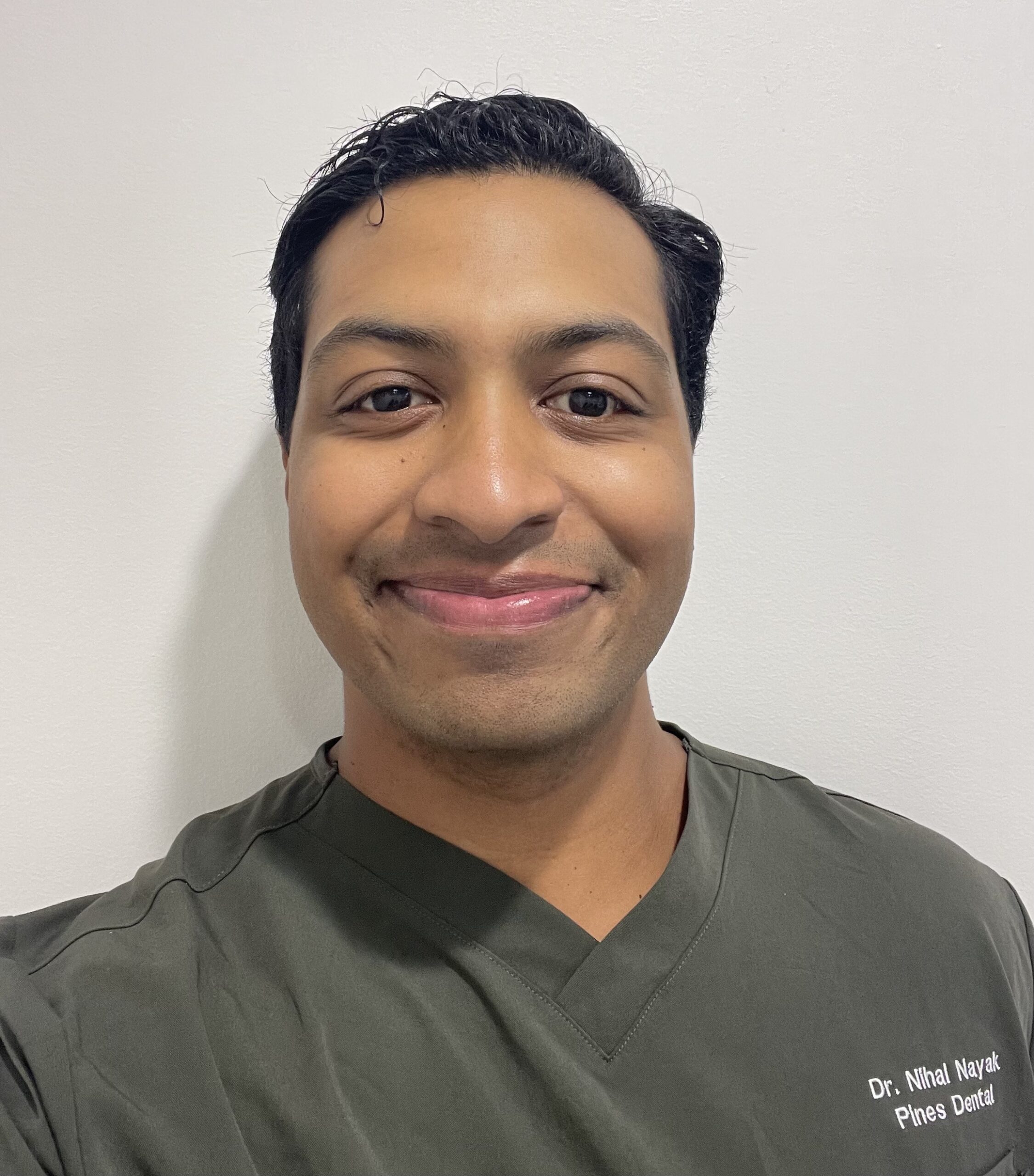
General Dentist – BBiomedSc (Aus), BBiomedSc (Hons), BDentHSc (Aus), MDent (Aus)
Dr. Nihal Nayak is a highly qualified general dentist with a strong academic foundation in biomedical and dental sciences.
Passionate about comprehensive patient care, he takes pride in creating a welcoming environment while delivering clinical excellence.
His goal is to empower patients with knowledge and confidence in every aspect of their dental health.
